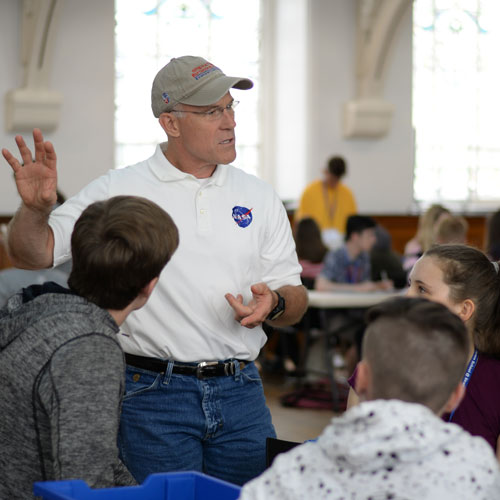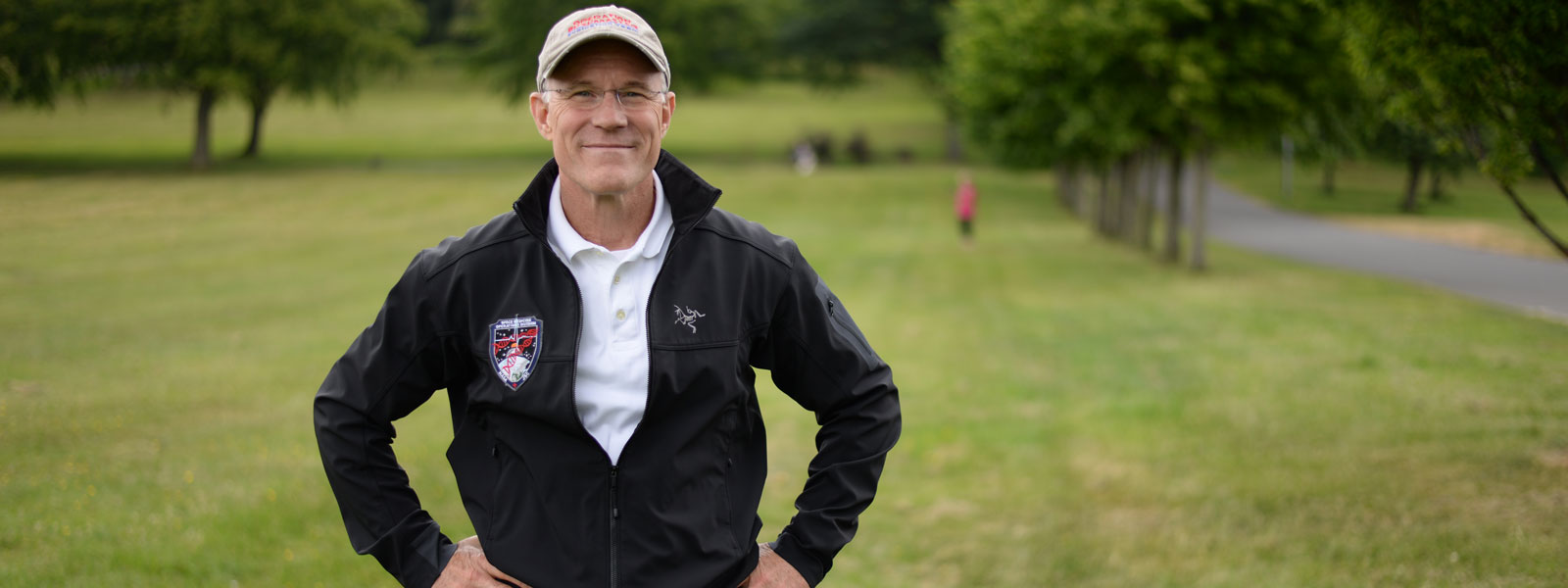Rick Scheuring is a NASA flight surgeon at the Johnson Space Centre. Rick works with astronauts to get them ready for space as well as caring for them while they're away and when they return. Rick's visiting the Strathclyde Scottish Space School so we caught up with him while he's here.
So, tell us a bit about yourself Rick!
So I am a NASA Flight Surgeon, and I’ve been at NASA since 2004. I’m one of the astronaut doctors so I help get the crews ready medically before, during and after their missions.
I’ve been a military air doc for nine shuttle launch landings, a Deputy Crew Surgeon for a shuttle mission and then a Flight Surgeon for four of the ISS missions so I’m currently the Crew Surgeon, the lead Surgeon for a mission next July. It was a childhood dream, always wanted to go into the space business, and I also love medicine so it’s been neat getting to do something I really love and helping people. I’m a very blessed guy.
How did you become a Flight Surgeon?

You have to be a medical doctor. So, in the US you have to do medical training. I started off in sports medicine and I did that in private practice for a number of years and then I went back for specialised training in aerospace medicine so that was an additional two years of medical residency which included getting a masters’ degree. Once I had that, then NASA hired me in 2004 and that’s really how you get to be a space doctor; you have to do your prior medical training after college so that’s four years at college, four years at medical school, three years of primary residency, there were two more years of secondary residency for space medicine, and then you get hired.
That’s a lot of training!
It’s a lot but I tell ya, it goes fast because it’s fun, it’s fun stuff. I’m a private pilot as well so just learning cool stuff from aviation, from space and stuff, yeah, it’s a lot of cool stuff, plus you get paid to do it, that’s the crazy thing.
How did you come to work at NASA?
At NASA, they’ll often have student rotations or clerkships, so when I was doing my training I did a one month clerkship and then you have an opportunity to do research and publish a paper and if you impress the right people then you can apply for a job – they actually hired me out of my residency.
What is your favourite thing about your job?
The people. Hands down. It’s the people that make me look forward to going to work each day.
I mean, yeah, I get to do all this cool stuff, but it’s [NASA] just got great people. They’re really passionate about the job, they work really hard, they care about each other and we’re doing something really, really cool.
What’s your favourite work memory?
I get to work with all the Apollo astronauts. I was the Constellation Surgeon back in 2006/07, so working with the Apollo astronauts and getting to meet all my boyhood heroes, that, that was cool. But probably my fondest memory was the night before my last crew member, Randy Bresnik, came back from space. I was talking to him on the telephone from the landing zone so we were just talking about all the things to expect and then we just had the opportunity to pray together for a safe landing and everything. Just thinking about having someone circling the Earth at 17,500 miles in a spacecraft and I’m praying with them and just being thankful, that was cool.
What subjects did you study in school?
In college, I studied psychology, chemistry, and zoology. And then medical school was medical school, it’s all pretty much the same but I subspecialised in sports medicine and then really brought sports medicine and orthopedics to NASA. I actually did additional fellowship training in muscular ultrasound as well so I actually have an additional two years of training in muscular ultrasound and I do all the astronaut orthopedics so that’s kind of, besides being a pilot and stuff, that’s the education part.
What advice do you have for young people today?
Find something you really, really, really, really like. Dedicate yourself to studying that, and combine that passion with really enjoying something and get really, really good at it, and then show the space programme how it benefits them and how it going to help people. If you do that, you’re going to go really far.
